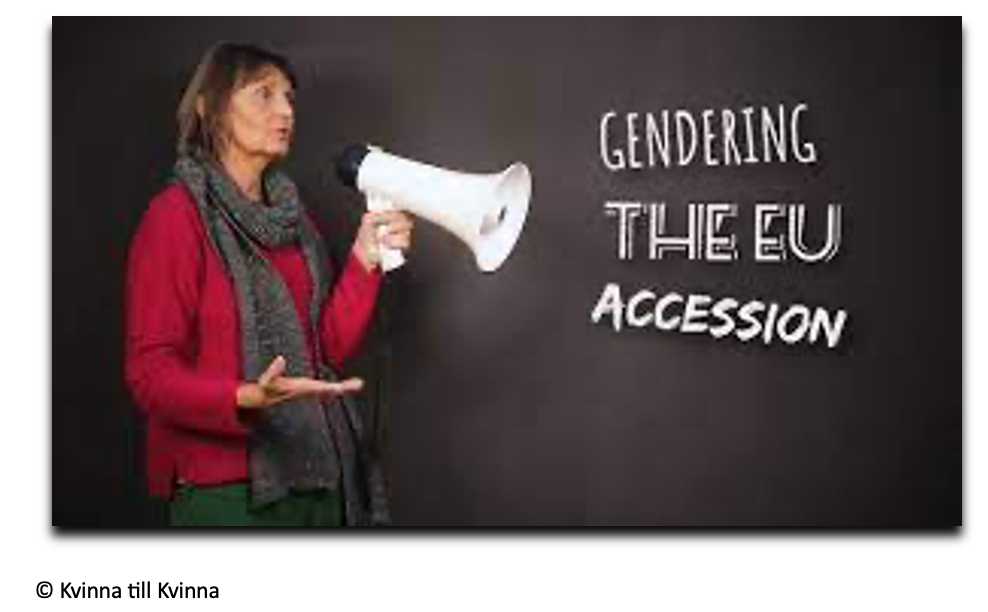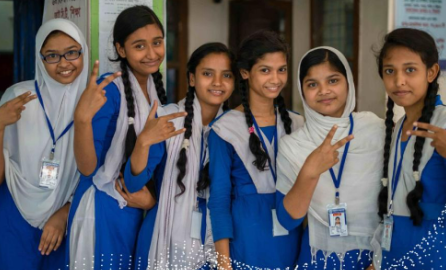EU accession for whom? Women's rights and participation in the Western Balkans

-
Gender marker: G2-Promotes gender equality as a primary objective
-
Period of implementation: 2020-2026
-
Amount: EUR 2,776,600
-
Geographical area: Western Balkans and Türkiye
-
(Co-)funded by: Sweden
-
Implementing partners:
-
Kvinna till Kvinna and their partners (women´s rights organisations) in Western Balkans
-
-
GAP III’s Areas:
-
Economic and social empowerment
-
Equal participation and leadership
-
In a particular context of civil unrest, democratic backsliding, shrinking space for civil society and rapidly growing anti-gender movements, the 2022 report “Women’s rights in Western Balkans” highlights how women continue to be entirely underrepresented in all levels of politics in a region where women’s unemployment, gender inequality in the labour market and gender-based violence and discrimination continue to be among the main challenges for achieving women's rights.
This report serves as a benchmark for the six Western Balkan accession countries in terms of women’s rights and influence and is used by women´s rights organisations from these countries (Albania, Bosnia and Herzegovina, Kosovo, Montenegro, North Macedonia, and Serbia) as their main advocacy tool with EU institutions. The report was elaborated by Kvinna till Kvinna and its partner organisations under the regional EU advocacy programme “EU Accession for Whom? — Women’s Rights and Participation in the Western Balkans”, funded by the Swedish International Development Cooperation Agency (Sida).
The programme aims to continue to strengthen women's rights and women's equal participation in decision-making in the Western Balkan region and to contribute to gendering the EU accession processes (broader thematic engagement, widened alliances and partnerships, new actors, etc…). The underlying assumption is that if the Western Balkan countries successfully become members of the EU, the whole population needs to participate in the process. The programme is implemented in close cooperation with women’s civil society organisations from the region, whose experience and efforts in areas such as peacebuilding, democracy, and rule of law are key for furthering the position of women in the region.
Moreover, this programme responds to Sweden’s commitment to use its global and regional strategies to support women’s rights organisations and networks worldwide.
With long experience in the region, Kvinna till Kvinna facilitates dialogue and exchange between women with different backgrounds and experiences, including actors from different sides of a conflict. Through funding, capacity-building and providing safe spaces, Kvinna till Kvinna’s support has strengthened the women’s rights movement in the region, enabled learning and exchange, and contributed to more independent and sustainable local organisations.
In the EU Advocacy Programme, Kvinna till Kvinna functions as a liaison between the EU and women's rights organisations in the Western Balkans, establishing contacts between them and facilitating cooperation to ensure that governments and parliaments legislate and implement laws and policies relevant to achieving gender equality in the region. Part of their advocacy efforts to improve the situation for women in the countries include regular advocacy visits to EU institutions, and meetings with decision-makers and other key actors in Brussels to express demands and share opinions. The work and expertise of women’s rights organisations has come to be highly recognised among key actors in Brussels and relevant EU institutions, who increasingly are requesting to integrate a gender perspective in the accession processes for the Western Balkan countries. At a time when it is increasingly difficult to ensure women’s equality and participation, it is more important than ever to support women’s rights organisations through joint networking and advocacy.
In the Western Balkan, women’s rights and gender equality are tightly interconnected with EU integration. Keeping the Western Balkans close to the EU, both politically and culturally, is crucial for successfully addressing human rights, including women’s rights - Kvinna till Kvinna (2022). ”Women’s Rights in Western Balkans”, p. 7.
The programme is praised for its inclusive nature and has a particular focus on including diverse national and regional networks, women’s groups and CSOs in its programmatic activities paying attention to multiple grounds of discrimination, including gender, sex, race, ethnicity, sexual orientation and ability.
Do you want to know more about Swedish support in this field? We encourage you to read the brief on Support for Women's Rights Organisations that is now part of Sida’s Gender Toolbox. Enjoy the reading!
